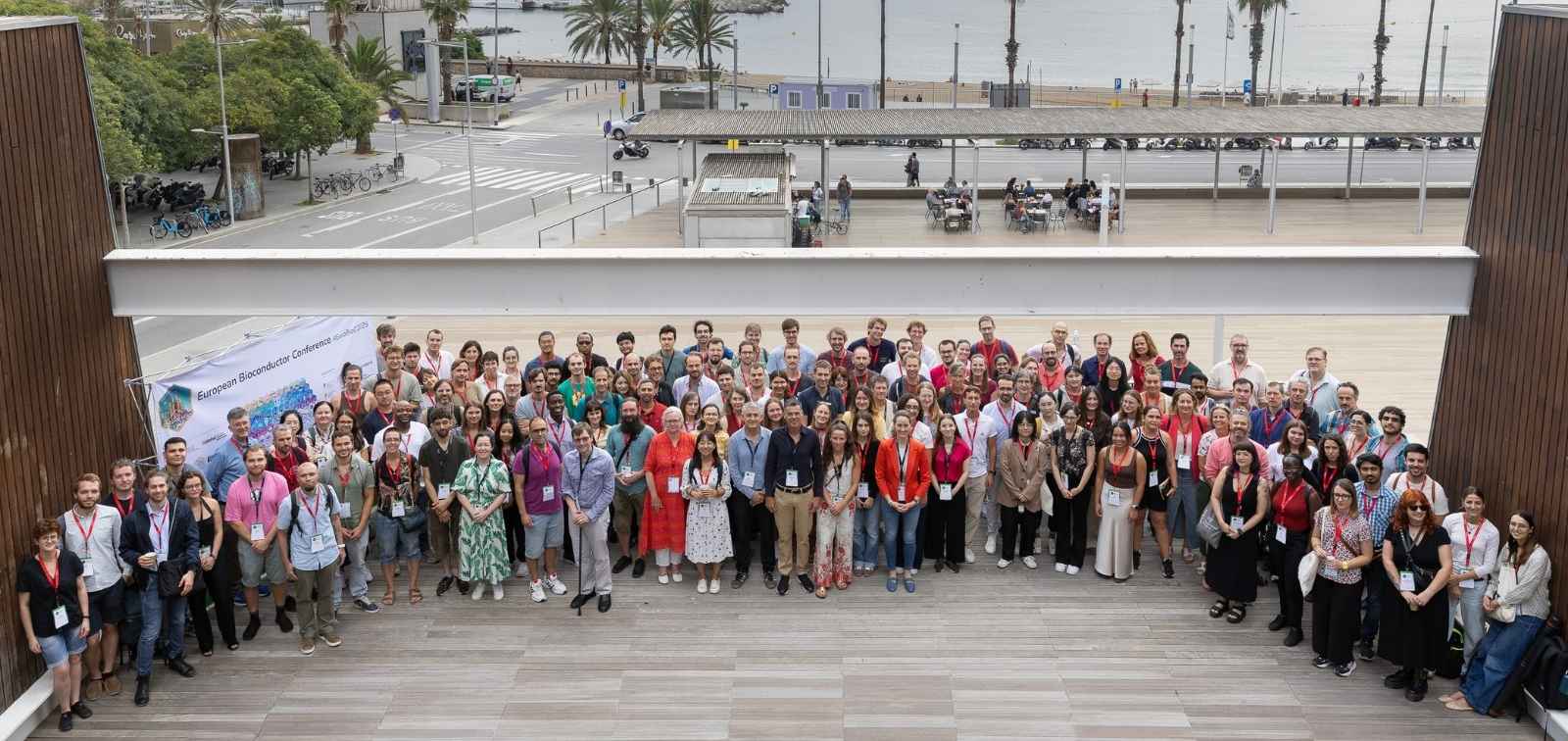For the first time, Barcelona is hosting the international congress of the community of Bioconductor users and developers
The event, organized by ISGlobal and the UPF and the Barcelona Institute for Global Health, is part of one of the organization’s three annual meetings, and was held in the auditorium of the Barcelona Biomedical Research Park
22.09.2025
For the first time in its 25-year history, the community of users and developers of Bioconductor –some of the most widely used open source software for analysing biological data accurately and reproducibly– has held its meeting in Barcelona. The European Bioconductor Conference (EuroBioC2025), organized by the European Bioconductor Society in collaboration with the Department of Medicine and Life Sciences (MELIS) of Pompeu Fabra University and ISGlobal, took place in the auditorium of the Barcelona Biomedical Research Park from Wednesday 17 September to 19 September.
“Bioconductor is open source software because, from a scientific standpoint, it couldn’t be any other way. The scientific community needs access to code and to understand how data has been analysed. Bioconductor’s success is grounded on the fact that around this software, there is a very large, active community of expert researchers in various areas of bioinformatics who have collaboratively developed more than 2,000 software packages to facilitate data analysis for biology and biomedicine. Hence the scope of this software is immense and helps to apply the principles of open science to research, which allows speeding up scientific progress”, states Robert Castelo, director of the Functional Genomics Group at MELIS-UPF and organizer of EuroBioC2025.
The meeting featured more than 30 talks, most of which were given by some of the more than 1,000 Bioconductor developers who shared and offered their knowledge to the community, as well as practical workshops, poster presentation sessions and “flash talks”. Vince Carey, a full professor of Medicine at Harvard Medical School and director of the Bioconductor project, was also a speaker.
“Bioconductor has not only facilitated the rigorous and transparent analysis of complex data, but has also contributed to democratizing the use of advanced methods among multidisciplinary teams, which has helped promote the interaction between genetics, environmental health and epidemiology”, points out Juan Ramón González, head of the Bioinformatic Research Group in Epidemiology at ISGlobal and co-organizer of the congress. “This meeting has been an excellent opportunity to continue transcending barriers between disciplines and promote open, reproducible and relevant science for global health. It has also been useful for raising awareness of new Bioconductor applications in various fields and to inspire new collaborations that advance translational and open research”, the researcher adds.
On the two days before the congress (15 and 16 September), the Bioconductor training committee, together with the Department of MELIS-UPF, organised two courses open to the public (not only to conference attendees). These were courses on the analysis and interpretation of data obtained from massive RNA sequencing, using Bioconductor software. Both courses were held in the teaching building of Mar campus and were awarded ‘The Carpentries’ teaching quality seal.
About Bioconductor
The Bioconductor project started in 2001 to develop and share open source software to analyse biological data accurately and reproducibly. A quarter of a century later, this ecosystem has become one of the most widely used in the analysis of biomedical and genomic data, accumulating more than 50 million software downloads by 2024.
This non-profit organization fosters the creation of an inclusive and collaborative community of developers and data scientists through initiatives including annual meetings in Europe, Asia, and the United States.
About the conference
The European Bioconductor Conference is supported by the European Bioconductor Society, Seqera, the Chan Zuckerberg Initiative foundation, the María de Maeztu (Department of MELIS-UPF [CEX2024-001431M]) and Severo Ochoa (ISGlobal [CEX2023-001290S]) seals of excellence, R-consortium, BigOmics Analytics, MedBioInformatics and Physalia-courses.



